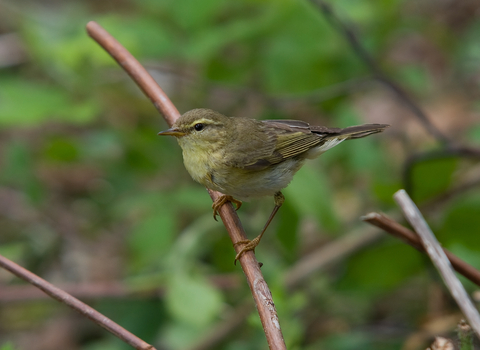
©Bob Coyle
Willow warbler
A summer visitor, the willow warbler can be seen in woodland, parks and gardens across the UK. It arrives here in April and leaves for southern Africa in September.
Scientific name
Phylloscopus trochilusWhen to see
April to SeptemberSpecies information
Category
Statistics
Length: 11-13cmWingspan: 19cm
Weight: 10g
Average lifespan: 2 years
Classified in the UK as Amber under the Birds of Conservation Concern 5: the Red List for Birds (2021).
